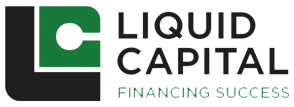Too often, teams try to take on too many difficult concepts at the same time in their projects. This can lead to confusion, team disconnect, a lack of progress. At worst it can lead to incorrect planning, failed and lost deliverables, even outright project failure.
Identifying and tackling the most difficult concepts first gives you the room to make clear progress on the most challenging conceptual areas first and avoid getting bogged down with a lack of focus. That focused communication is essential for a successful project, so make sure you take the time to understand and clarify all of the concepts involved, starting with the most difficult.
Looking for the most difficult concepts first ensures that you're tackling most dense and likely most conceptually hard to align on for your team. By focusing on the most difficult concepts first, you'll be able to clear the way for a successful project.
Not only will this make the project more manageable, but it'll also help to improve clarity within the team -- never underestimate the confidence in team building that this provides. By ensuring that team alignment is top priority from the start, you can maintain confidence, avoid unnecessary confusion or frustration further down the line.
Understand, clarify, and unify all of the concepts involved
One of the best ways to ensure clarity in a project is to understand and clarify all of the concepts involved. This means taking the time to define terms and make sure everyone adopts and embraces your term definitions. It can be helpful to create a glossary, knowledge base, or mindmap to illustrate key concepts.
This heightened level of engagement and concentration then carries over to other areas of our work, making us more effective and productive overall.
Communicate effectively with your team and project partners
Communication is key when it comes to clarity in projects. If there are any misunderstandings or confusion, it can lead to problems down the road. That's why it's important to communicate effectively with your team or project partners. This means being clear and concise, making use of the correct definition terms, referencing project documents like mindmaps. Particularly where concepts and scale are large, we encourage iterating your documentation as the team polishes details. By updating your core documentation with appropriate version updated (v0.1, v0.4, v.1.0 etc choose your own numbering scheme) you centralize documentation as the primary source of truth for the whole team, limiting room for straying from the core vision for any one member.
In larger and more dynamic teams, where multiple topic conversations require specific team involvement, you will want to start using collaborative platforms for sharing your versioned documents, chatting, meeting, discussing, showing, documenting as well as ticketing and project management.
Make clear progress and avoid getting bogged down
In order to make clear progress and avoid getting bogged down in a project, it's important to have a clear goal and plan in place. This means setting deadlines and priorities, and making sure everyone is using the same systems and communication methods with continual tracking of progress. We won't get into project systems or methods here, but common considerations usually focus on ease of use for all team members regardless of role or skill set, a straightforward ability to set deliverable due dates, person responsible and usually some form of task grouping into task sets and milestones.
The Halo Effect
Much of this discussion has focused on what can wrong, now let's look at intangible and powerful benefits of tackling complex concepts first: The Halo Effect (it's not just for phones anymore).
The Halo Effect is an intangible yet powerful benefit of tackling complex concepts first. It comes from the idea that when we are trying to understand something complex, our brain is working hard and making connections. This heightened level of engagement and concentration then carries over to other areas of our work, making us more effective and productive overall.
Your team's heightened engagement puts the team in a place of collective discipline you cannot achieve otherwise. This is because the vision becomes clear, from complexity, to depth, to detail, and to reward. Even where team's skills are wide-ranging the vision is still the same. You've got collective references, vocabulary, documentation, strategic mindmaps - you name it, it's powerful and unifying.
Discipline Flows More Easily
Discipline flows more easily when confidence is high and everyone is working towards a common goal, this comes from a team has a clear understanding of what that goal is. When complex concepts are tackled first, everyone is more engaged and can be more disciplined, which makes it easier to stay on track and achieve goals.
Maintaining a high level of discipline and focus among team members allows you to set accountability expectations, enforcing clear guidelines for tasks, collaborations, and deadlines - especially where complex challenges need to be worked through.
Ensure a successful project outcome
With shared vision, documentation, collaborative updates of documentation and shared terminology, as a defined ongoing model for deep diving into your most complex project areas, you can build discipline and accountability, focus and success.


















